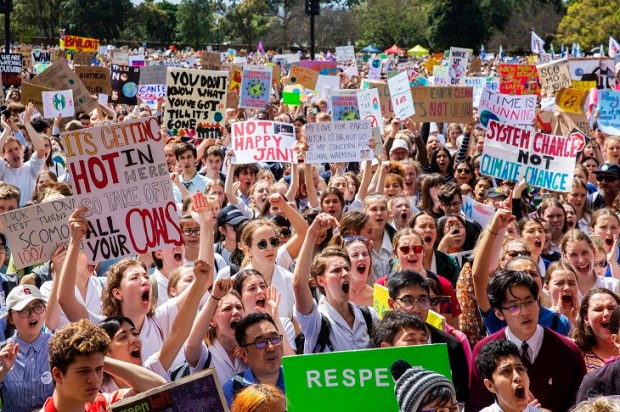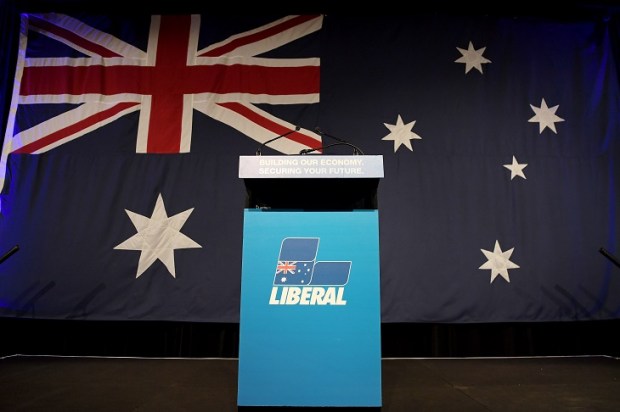The claim that Peter Dutton’s election policies ‘offer nothing for women’ is absurd. Lower fuel costs aren’t sexist. First-home support applies to all genders. Or are we seriously now arguing that women don’t drive or don’t want to buy homes? If that’s the new standard of feminist analysis, the Left has gone full parody.
It all kicked off again when a Sydney Morning Herald and the Age federal politics reporter used a question at yesterday’s press conference to refer back to Dutton’s campaign launch, where leaders spoke about ‘how much of a man you were’. The disgust in her voice was unmistakable – the tone barely masked her contempt. But the need to stay on script with the Left’s favourite narrative – finding misogyny in everything from fiscal policy to facial expressions – held her together better than a Bunnings bungee cord after a Saturday snag run.
Let’s take a moment here. What, exactly, is the crime in being called a man? Is manhood now itself considered a shameful act against humanity? Apparently so – especially if it’s attached to a conservative who doesn’t apologise for existing.
And this wasn’t her only stretch. The same reporter claimed that Dutton’s focus on energy, construction, agriculture, and mining as the four pillars of his policy platform amounted to ‘offering nothing for women’. Because unless a plan includes a symbolic nod to gender struggle or some boutique diversity quota, apparently it doesn’t count.
Now, back to the facts. The ATO confirms that in 2022, the mining sector paid more tax than all other sectors combined. That revenue doesn’t just prop up big companies – it funds schools, hospitals, childcare, and roads. Female-dominated sectors like care and education are almost entirely subsidised. They don’t grow without the tax contributions of those big, dirty, male-heavy industries the activist class loves to sneer at.
In fact, the top five taxpaying sectors in Australia – mining, financial services, construction, manufacturing, and professional services – are all dominated by private enterprise, and yes, by men. But here’s the real misogyny no one wants to talk about: you can’t fund public services for women (or anyone else) without production, profit, and tax.
Then there was the work-from-home beat-up. Dutton was labelled misogynistic for asking public servants to return to the office – yet CBA, ANZ, and other major banks brought workers back to the office two years ago, and no one screamed sexism then. But when Dutton says it? Suddenly it’s a structural attack on women – because someone managed to trace a far-fetched link back to gender roles.
Interestingly, banking and finance jobs are more compatible with remote work than most public sector roles. But still, the Fair Work Commission ruled the default arrangement should be working from the office, while the CPSU negotiated a default of working from home for public servants. That’s a major policy inconsistency – one rarely discussed – and not grounded in any clear economic evidence. And yet no one’s screaming sexism or gender oppression at the Fair Work Commission?
And what does the actual research say? Not what the activists would have you believe. The evidence on whether WFH has broad, long-term benefits for women is mixed at best. In fact, a study published in the Journal of Marriage and Family found that remote work can negatively impact women’s wellbeing, particularly through elevated work-family conflict. Far from liberating, WFH can blur boundaries and pile pressure onto women – especially working mothers juggling dual roles under one roof.
So no, returning to the office isn’t anti-woman. And suggesting that asking public servants to do what private sector workers have already done – without a whimper – is somehow gendered oppression is peak absurdity.
Let’s not forget the polling myth. The Freshwater Strategy poll showed that among younger voters, 58 per cent of women and 55 per cent of men preferred Albanese. That’s not a gender revolt. That’s a three-point difference – barely above the margin of polling error – yet it was instantly ballooned into headlines suggesting that ‘women hate Dutton’.
Yes, women generally show a mild preference for left-leaning and incumbent governments, but that shouldn’t be exaggerated into gospel. That’s where the gender difference in voting story ends. When it comes to choosing leaders, the ultimate decider – for women and men – is policy substance. The same narrative failed spectacularly in the United States, where Kamala Harris’ campaign tried hard to be ‘relatable’ and ‘likeable’ to women, only to prove that voters – including women – prioritise real economic policy over performative likeability.
Bottom line? Dutton’s policies are designed to rebuild the country’s economic base – the very thing that pays for every government program critics claim to care about. They don’t exclude women. They don’t exclude anyone. What they exclude is fantasy economics and identity-driven grievance politics.

























